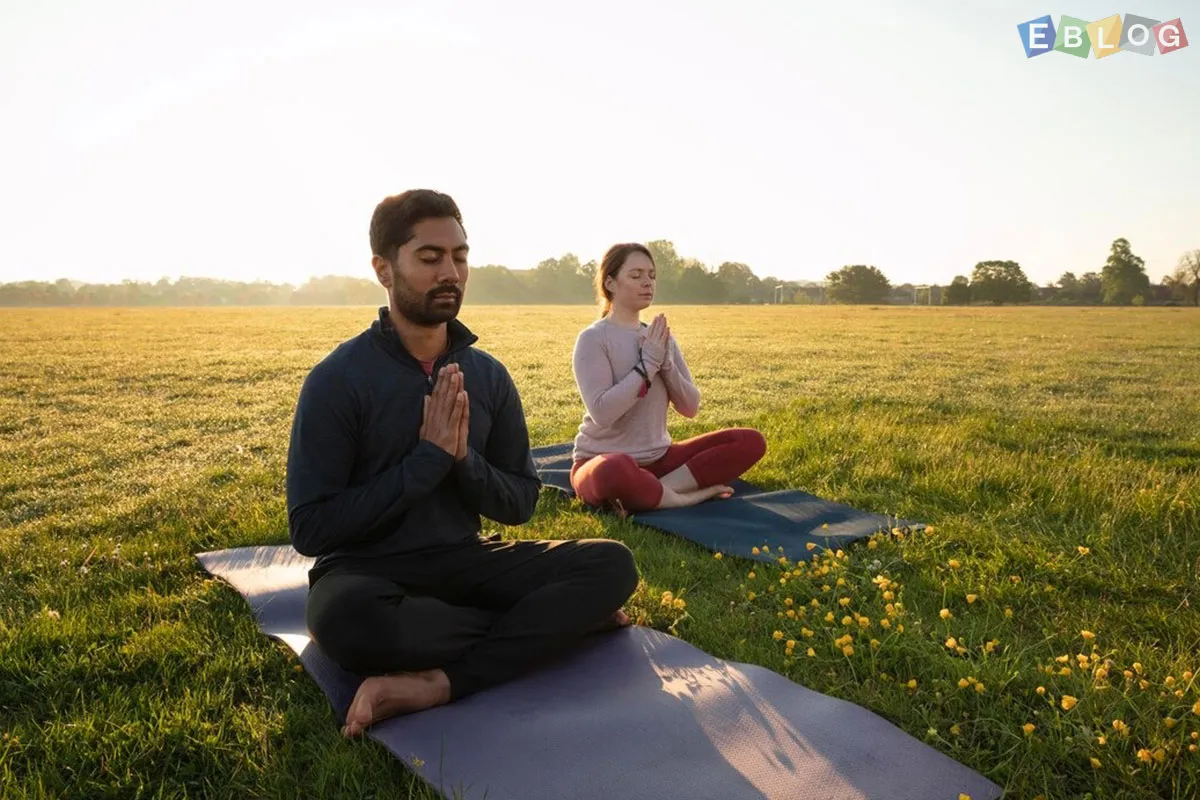
The Role of Meditation and Prayer in Spiritual Growth
- 12 Feb, 2025
- Religious
- 590 Views
- 0 Comments
Spiritual growth is a deeply personal journey, one that is nurtured through various practices and experiences. For many, meditation and prayer play essential roles in this process, serving as powerful tools for self-reflection, connection with a higher power, and overall well-being. While the specific practices may vary across cultures and religions, the underlying purpose remains the same: to foster a deeper connection to oneself, others, and the divine. In this blog, we will explore the role of meditation and prayer in spiritual growth, highlighting their transformative potential.
1. What is Spiritual Growth?
Before diving into the role of meditation and prayer, it’s important to understand what spiritual growth means. Spiritual growth refers to the process of developing a deeper sense of inner peace, understanding, and connection with the world around us. It’s not limited to religious practices but also involves personal development, self-awareness, and a heightened sense of compassion, love, and empathy. Spiritual growth is often accompanied by a sense of purpose, fulfillment, and a desire to contribute positively to the world.
2. Meditation: A Path to Inner Peace and Clarity
Meditation is a practice that has been embraced by countless spiritual traditions, from Buddhism to Christianity. At its core, meditation is about quieting the mind, focusing attention, and becoming more aware of the present moment. Through regular meditation, individuals can develop a sense of inner peace, emotional balance, and clarity.
3. Key Benefits of Meditation in Spiritual Growth:
a. Self-Awareness and Reflection Meditation encourages deep self-reflection, helping individuals become more aware of their thoughts, emotions, and patterns of behavior. By observing one’s internal world without judgment, individuals can identify areas for personal growth and make conscious decisions to align their actions with their values.
b. Mindfulness and Presence Meditation trains the mind to be more mindful and present. This heightened sense of awareness allows individuals to live in the moment rather than dwelling on past regrets or future anxieties. By practicing mindfulness, one can cultivate a deeper appreciation for life and experience a more profound connection to the present moment.
c. Emotional Healing and Balance Spiritual growth often involves healing emotional wounds and releasing negative thought patterns. Meditation can help individuals process their emotions and develop greater emotional resilience. By creating space for self-compassion and acceptance, meditation allows individuals to let go of emotional baggage and move toward inner peace.
d. Connection to a Higher Power For those who view their spiritual journey as a connection to a higher power or divine presence, meditation can be a means of opening up to that connection. Whether through prayerful meditation, visualization, or simply sitting in stillness, meditation fosters a sense of communion with the divine, helping individuals feel spiritually nourished and supported.
e. Stress Reduction and Well-being Regular meditation has been shown to reduce stress, lower blood pressure, and improve overall well-being. A peaceful mind and a balanced body are essential for spiritual growth, as they create the foundation for deeper introspection and connection with the divine.
3. Prayer: A Means of Connection and Devotion
Prayer, like meditation, is an ancient practice that transcends cultural and religious boundaries. It is often considered a form of communication with a higher power—whether God, the Universe, or the Divine. Prayer is a means of expressing gratitude, seeking guidance, asking for strength, and deepening one’s connection to the divine.
4. Key Benefits of Prayer in Spiritual Growth:
a. Cultivating a Relationship with the Divine Prayer allows individuals to establish and nurture a relationship with a higher power. Whether it’s through formal rituals, spontaneous conversation, or silent reflection, prayer fosters a sense of connection and intimacy with the divine. This connection is foundational to spiritual growth, as it provides comfort, guidance, and a sense of purpose.
b. Guidance and Clarity Many people turn to prayer when they seek clarity or direction in their lives. Prayer provides an opportunity to ask for wisdom and guidance, helping individuals navigate life’s challenges with faith and trust. Through prayer, individuals may receive intuitive insights, inspiration, or a sense of peace that guides them along their spiritual path.
c. Gratitude and Humility Prayer helps cultivate an attitude of gratitude and humility. Taking time each day to express thanks for the blessings in one’s life fosters a deeper sense of appreciation for the present moment. By acknowledging the divine presence and recognizing that we are part of something greater, prayer can instill a sense of humility and reverence.
d. Healing and Surrender Prayer is a powerful tool for emotional and spiritual healing. When faced with struggles, individuals can turn to prayer for solace, comfort, and the strength to let go of fears, worries, and attachments. Through prayer, individuals surrender their concerns to the divine, trusting that they will receive the support they need on their spiritual journey.
e. Intention Setting and Manifestation Prayer also serve as a form of intention setting. By offering prayers for personal growth, healing, or specific desires, individuals can align their actions with their intentions. Prayer creates a sacred space for focusing on one’s goals and aspirations while trusting in divine timing and support.
5. Meditation and Prayer: Working in Harmony
a. While meditation and prayer may seem like distinct practices, they often complement one another in the process of spiritual growth. Meditation provides the space for self-awareness, mindfulness, and emotional healing, while prayer offers a means of connection, devotion, and guidance from a higher power.
b. Incorporating both practices into your daily routine can create a harmonious balance that nurtures your spiritual journey. For example, you might start your day with a few minutes of meditation to calm your mind and center yourself, followed by a prayer to express gratitude and seek guidance. Alternatively, you could meditate on a prayer, allowing the words to deepen your spiritual connection.
6. Final Thoughts
Meditation and prayer are powerful tools for spiritual growth, each offering unique benefits that contribute to a deeper sense of peace, purpose, and connection. By integrating these practices into your daily life, you can cultivate a greater sense of awareness, heal emotional wounds, and build a meaningful relationship with the divine. Whether you are seeking clarity, healing, or simply a deeper connection with your inner self, meditation, and prayer provide the spiritual nourishment needed to embark on a transformative journey of growth and self-discovery.















Leave a Reply